Subnautica gave me the experience I wanted from No Man’s Sky
This underwater survival game makes exploration meaningful.
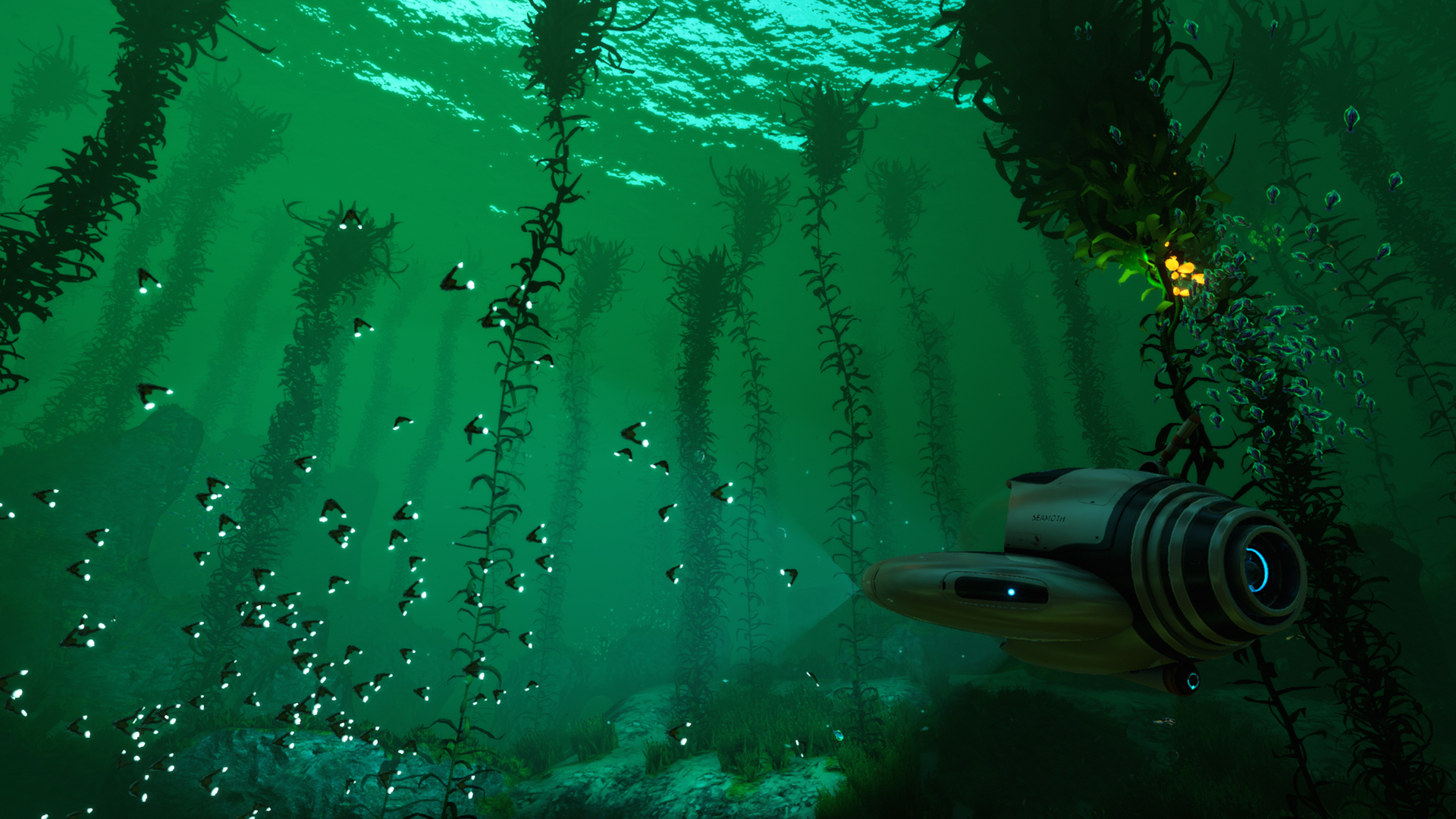
For the record, I thought No Man’s Sky was fine. It fell way short of my expectations, sure. A combination of developer Hello Games over-promising, and those promises mutating and growing out of control in my own mind. But I managed to squeeze thirty enjoyable hours out of it—especially after Creative mode was added, removing the constant, tedious need to harvest fuel and craft warp cells. It’s a game I turn to when I want to play something placid and undemanding. I love idly hopping between planets, taking photos, and wondering what the procedural generation will throw up next.
But that’s not the experience I wanted. When it was first announced, the idea of taking a starship and exploring a vast galactic frontier was thrilling. My imagination was flooded with visions of landing on uncharted alien worlds that were rich with mystery, intrigue, and discovery. But the reality is a lot of mostly dull, samey landscapes littered with a repeating handful of structures and objects, making this infinite universe feel somehow limited in scope. But with over 18 quintillion randomly generated planets to visit, it’s perhaps unsurprising that none of them really feel that special.
There’s just one planet in Subnautica, home to an expansive ocean teeming with peculiar flora and fauna. Explore its depths and you’ll find fields of dancing kelp, caves illuminated by fluorescent fungi, bubbling thermal vents, and sandy plains sprinkled with glowing plants. It’s a diverse, vibrant setting, and feels truly alien. And while it may be unfair to compare quintillions of procedurally generated planets to a static, hand-crafted one, playing Subnautica gives me exactly what I wanted from No Man’s Sky: landing on another world, exploring it, and being surprised by what I find there.
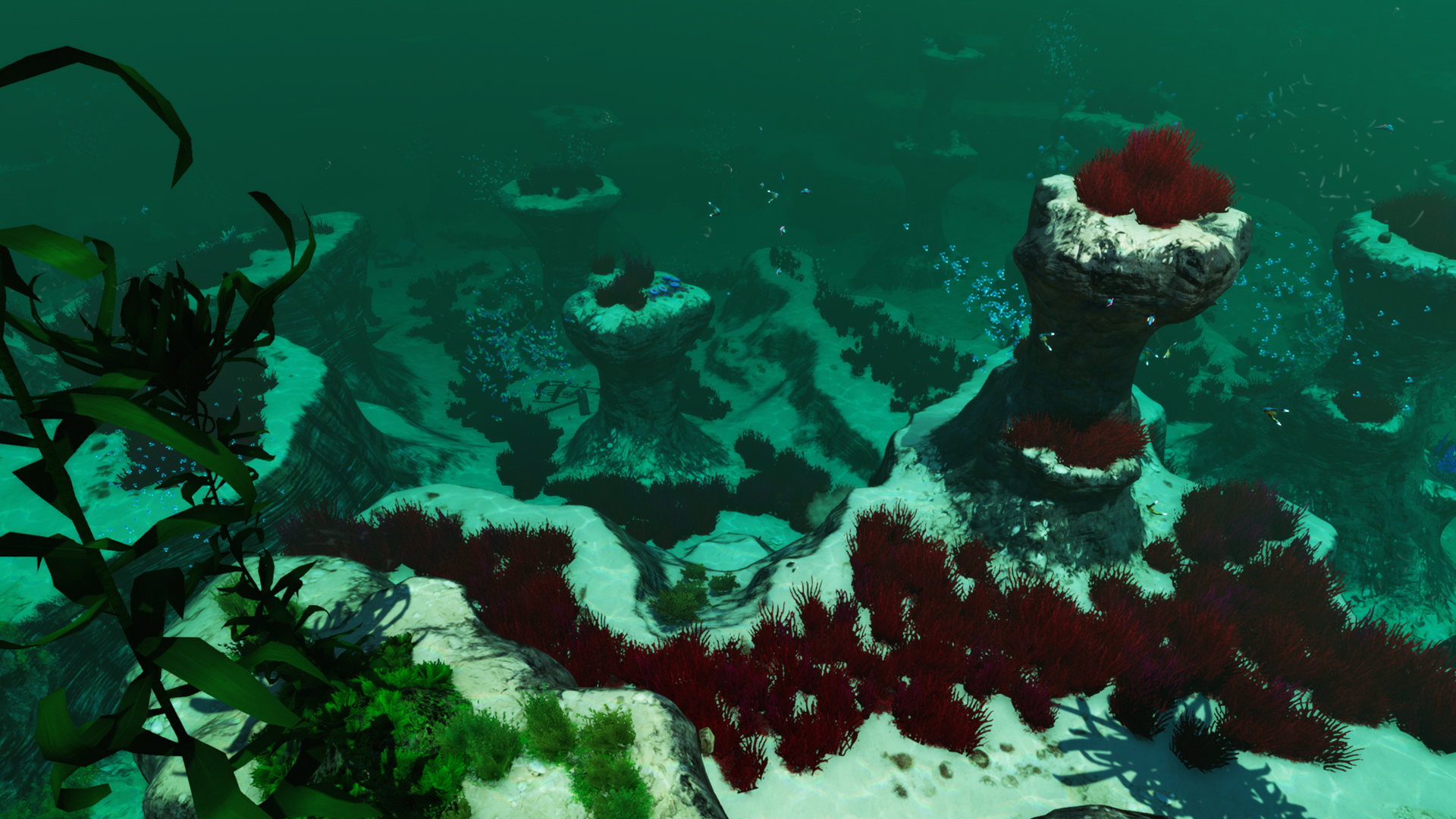
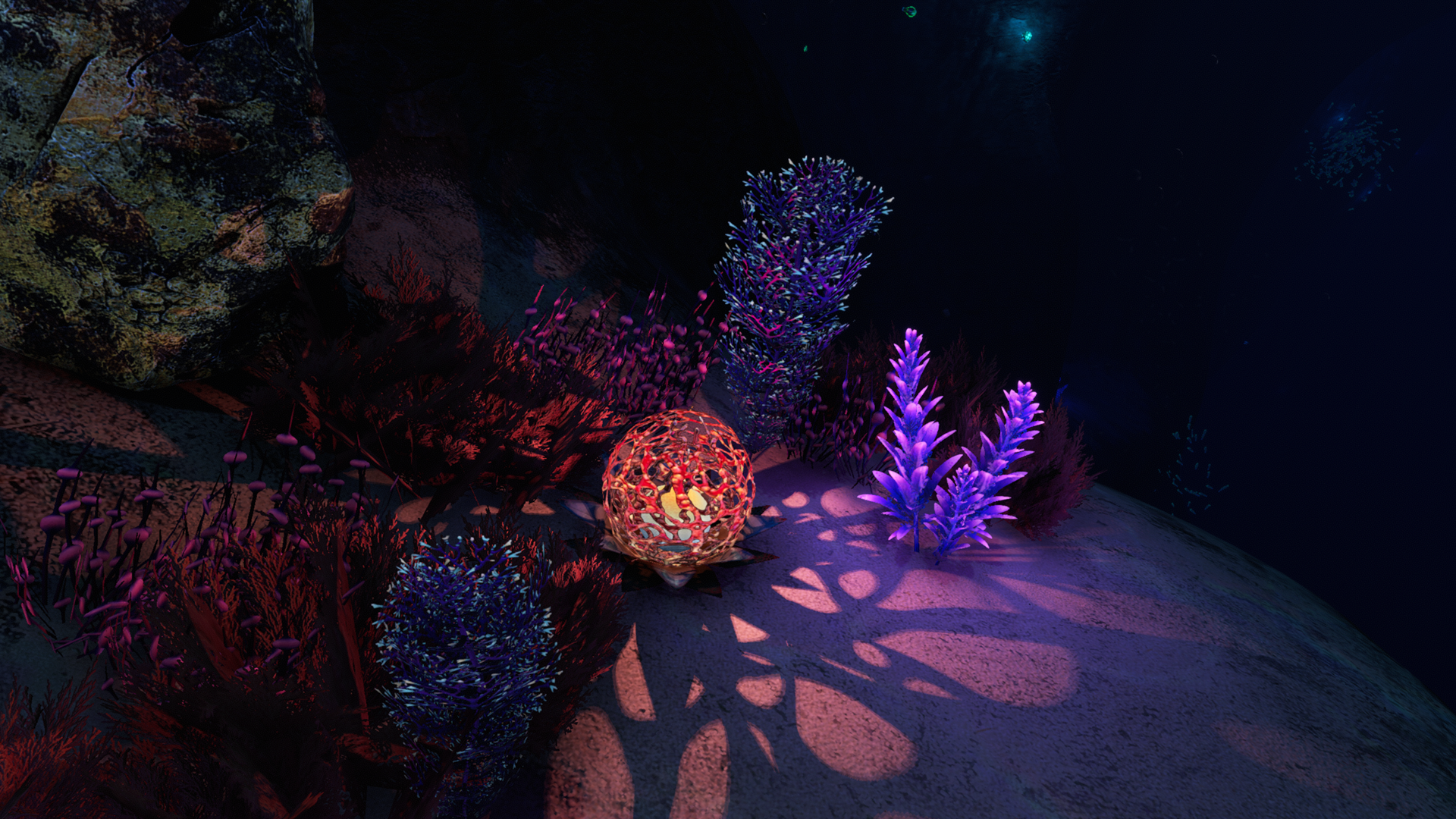
If you’re only aware of Subnautica in passing, you might have written it off as just another survival game. But what makes this one stand out for me is the story, which hums away in the background and can be dipped into, or ignored, at your leisure. Your ultimate goal is getting off the planet you’ve crash landed on, but along the way there are mysteries to unravel, stories to piece together, and intriguing secrets lurking beneath the waves. And these discoveries contribute to an ongoing narrative, making following signals, poking around in wrecks, and looking for clues in lost PDAs worth your time.
But sometimes it’s better to just pick a direction and swim. Some of the most impressive things I’ve seen, I discovered completely by accident. The hulking silhouette of a wrecked starship, resting precariously on the edge of a shadowy abyss. An underwater volcano spewing fire and ash. Shoals of iridescent fish swimming across the spotlights of my submersible. And it only gets more interesting the deeper you go, which gives you an incentive to craft advanced equipment and vehicles to withstand the crushing pressure of the depths. I usually find harvesting materials and building stuff in survival games a chore, but in Subnautica, every step towards a new invention that’ll let me explore further and deeper is hugely exciting.
Subnautica’s underwater world also feels like it has a functioning ecology. Plants and sealife have distinctive roles and behaviours, and they interact with the environment around them: whether it’s a sand shark bursting out of the silt to grab a passing fish in its jaws, or stalkers scooping up chunks of ship wreckage and taking them for a swim. Compare this to the creatures in No Man’s Sky, who roam in aimless herds and have no real connection to their surroundings, and you can see why Hello’s planets feel so dead. Another benefit of choosing to sculpt rather than generate an ecosystem.
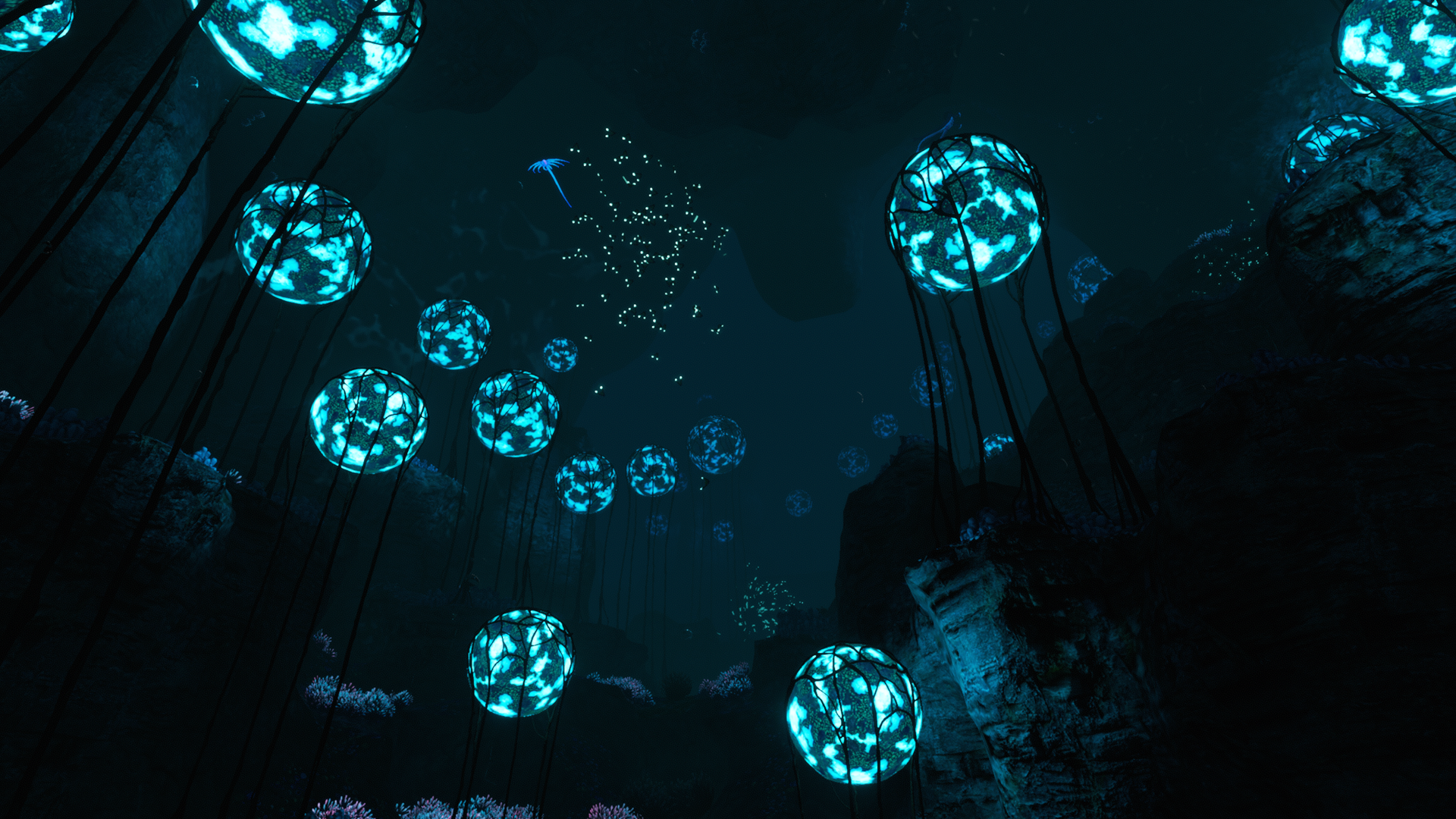
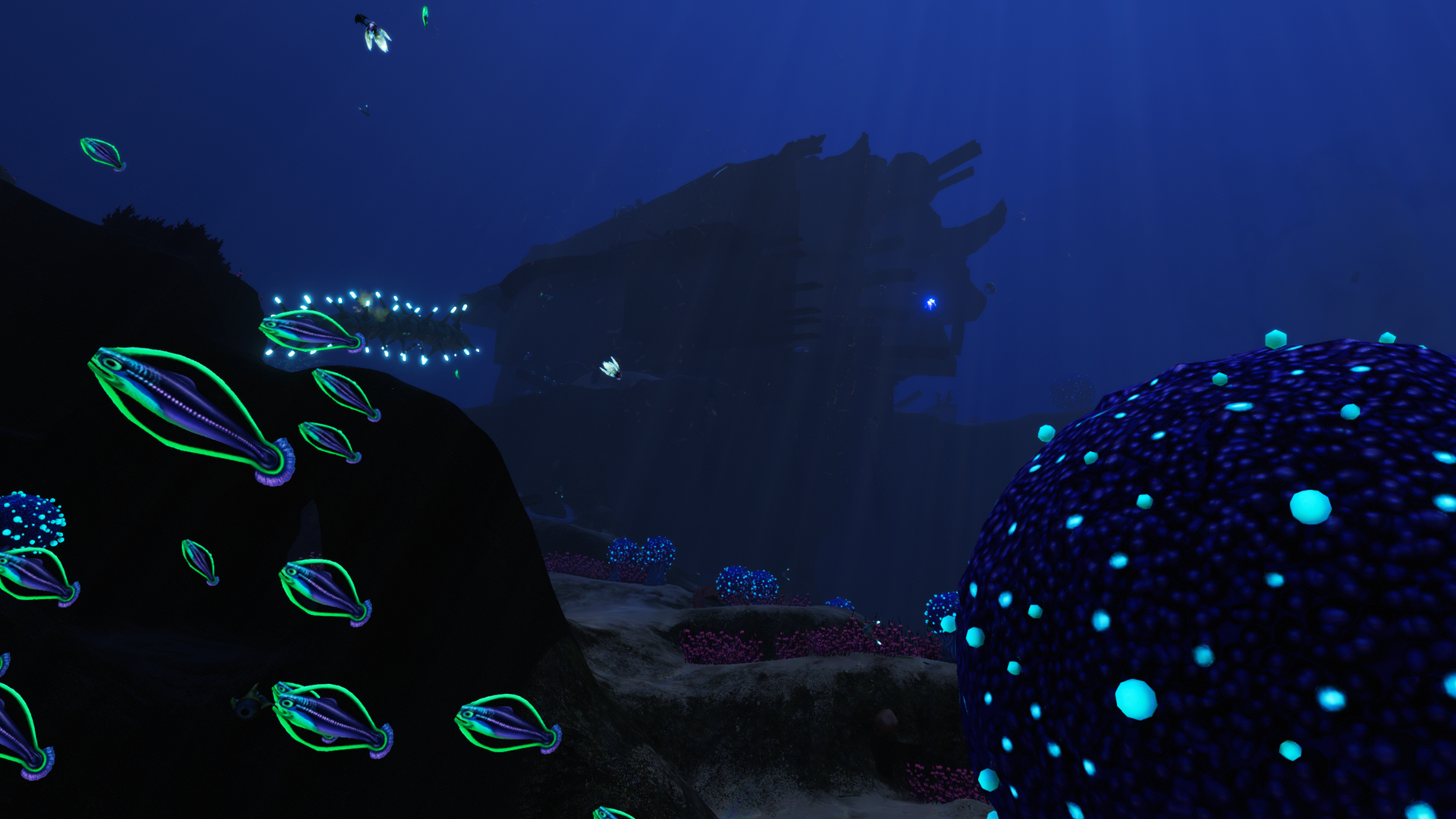
A common misconception about procedural generation is that there’s no real authorship involved—that procedural worlds are soullessly churned out by software. But it takes a creative mind to write the rules of that software in the first place, and artists to create the assets that fuel it. For me, the real problem with No Man’s Sky isn’t that it’s procedurally generated—it’s that it fails to use that impressive technology to create a compelling exploration experience. And in a game that claims to be all about the joy of discovery, that’s a pretty fundamental flaw. A flaw that Subnautica manages to avoid by limiting its scope to a relatively small, more curated space.
The biggest gaming news, reviews and hardware deals
Keep up to date with the most important stories and the best deals, as picked by the PC Gamer team.
Perhaps procedural generation is fundamentally at odds with satisfying exploration. When you find a diary in Subnautica, you hear them specifically talk about the place where you found it, giving that location context—and maybe even leading to a supply cache or secret entrance. But creating that connection with some randomly generated mass of terrain is a lot more difficult. And that’s why, when you find something in No Man’s Sky, it doesn’t actually matter where it is. There are no references to the local geography: that there’s a nearby mountain that may be worth investigating, or a lake abundant with resources. And without those details, exploring feels meaningless.
An infinite universe where every planet is as detailed and bespoke as Subnautica’s ocean world would be great but, crucially, literally impossible. So forget infinity. The hours I’ve spent paddling around in this weird, wonderful alien sea have been more memorable than all the time I spent planet-hopping in No Man’s Sky. And I think that makes a solid case for future sci-fi exploration games to focus on smaller, more detailed settings over an endless, characterless expanse of cosmos. I’d personally rather have one, or a handful, of interesting, hand-crafted planets filled with things that are actually worth discovering than several quintillion random, forgettable landscapes.
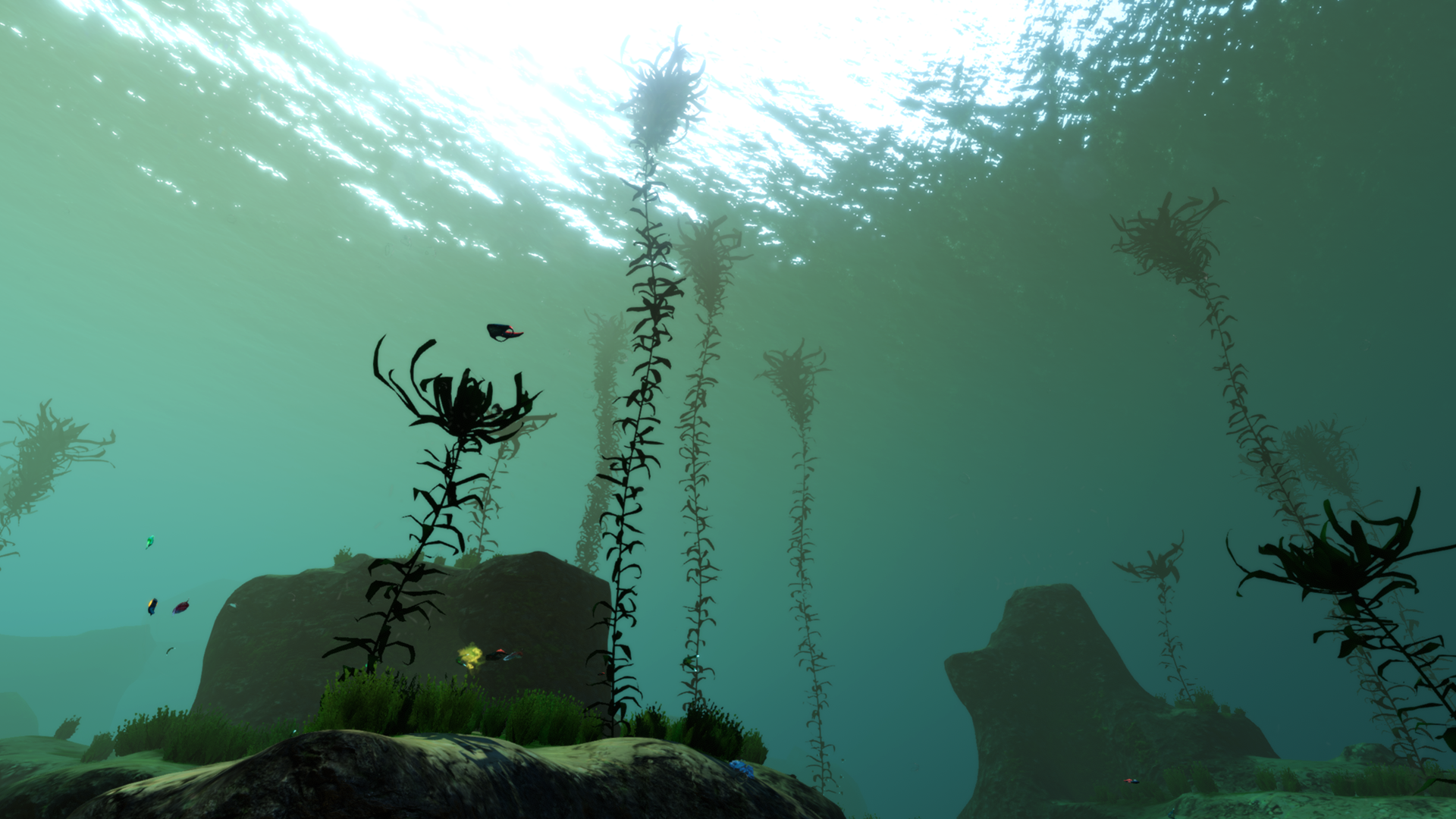

If it’s set in space, Andy will probably write about it. He loves sci-fi, adventure games, taking screenshots, Twin Peaks, weird sims, Alien: Isolation, and anything with a good story.


